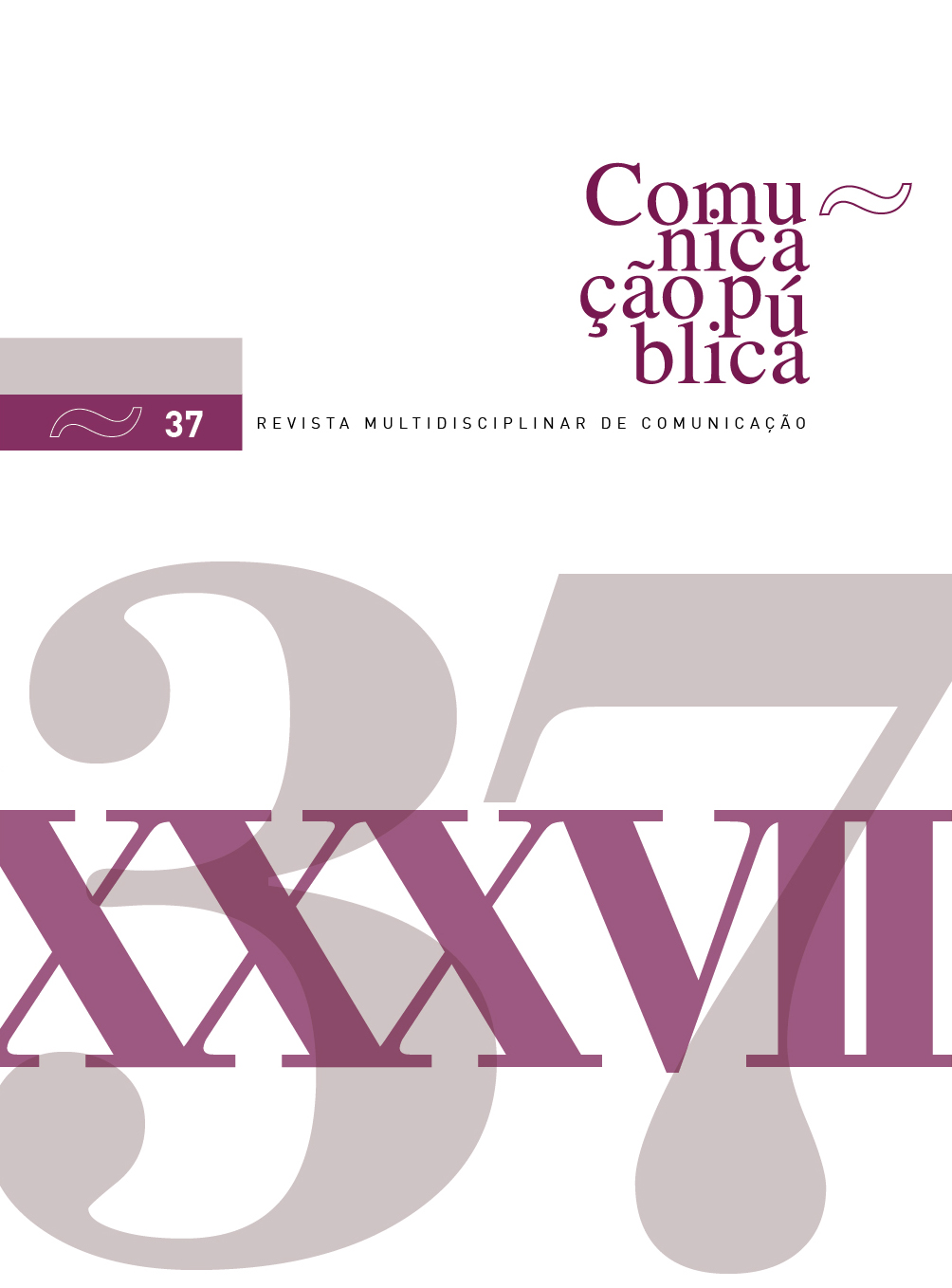Digital culture
mediatization, surveillance and public space
DOI:
https://doi.org/10.34629/cpublica.872Keywords:
digital culture, social media, disinformation, surveillance, digital mediaAbstract
The transformation in culture, driven by digital technology and the development of media, information, and communication systems, represents one of the most significant challenges of contemporary societies. Understanding these profound changes and their impacts becomes part of the everyday life of communication professionals and citizens in general. In this context, what challenges, risks and opportunities arise? What new public spaces for interaction and socialization are being fostered? Through a transdisciplinary approach, this special issue aims to reflect on the impact of new technologies in a society based on the abundance of information and data that coexists with the potential of rupture and instability, with a deep and widespread crisis of confidence as a result.
Downloads
References
Arditi, D. & Miller, J. (Eds.). (2019). The dialectic of digital culture. Lexington Books.
Athreya, B. (2020). Slaves to technology: worker control in the surveillance economy. Anti-Trafficking Review, 15, 82–101. https://doi.org/10.14197/atr.201220155.
Brabazon, T. (2017). Afterword: (digital) physical cultural studies? In M. Silk, D. Andrews & H. Thorpe (Eds.), The Routledge handbook of physical cultural studies (pp. 597–603). Routledge.
Braidotti, R. (2013). The posthuman. Wiley.
Castells, M. (2009). The communication power. Oxford University Press.
Dijck, J., Poell, T., & Waal, M. (2018). The platform society. Oxford University Press.
Foucault, M. (1975). Surveiller et punir. Gallimard.
Foucault, M. (2004). Naissance de la biopolitique (1978–1979). Le Seuil.
Furtado, J. A. (2012). Uma cultura de informação para o universo digital. Fundação Francisco Manuel dos Santos.
Haggerty, K. D. & Ericson, R. V. (2000). The surveillant assemblage. The British Journal of Sociology, 51(4), 605–622. https://doi.org/10.1080/00071310020015280.
Hall, S. (Ed.). (1997). Representation: cultural representations and signifying practices. The Open University & Sage.
Haraway, D. (1991). Simians, cyborgs and women: the reinvention of nature. Routledge.
Helbing, D. (Ed.). (2019). Towards digital enlightenment: essays on the dark and light sides of the digital revolution. Springer.
Hesmondhalgh, D. (2013). The cultural industries. Sage.
Hjarvard, S. (2013). The mediatization of culture and society. Routledge.
Klinenberg, E. & Benzecry, C. (2005). Introduction: cultural production in a digital age. The Annals of the American Academy of Political and Social Science, 597(1), 6–18. https://doi.org/10.1177/0002716204270420.
Manovich, L. (2009). The practice of everyday (media) life: from mass consumption to mass cultural production? Critical Inquiry, 35(2), 319–331. https://doi.org/10.1086/596645.
Medeiros, N. (2024). Cultura e comunicação impressas como trânsito e formulação do mundo: mediação, prescrição, apropriação. In Z. Duarte, J. S. Santos & S. S. Souza, S. S. (Eds.), Diálogos interdisciplinares: perspectivas integradoras de unidades de informação, documentação e cultura (pp. 321–336). Editora Cultura & Informação.
Orton-Johnson, K. (2024). Digital culture and society. Sage.
Ramella, A. L., Lehmuskallio, A., Thielmann, T. & Abend, P. (2017). Introduction: mobile digital practices. Situating people, things, and data. Digital Culture and Society, 3(2), 5–18. https://doi.org/10.14361/dcs-2017-0202.
Ringrose, J. & Harvey, L. (2017). Digital mediation, connectivity and affective materialities. In M. Silk, D. Andrews & H. Thorpe (Eds.), The Routledge handbook of physical cultural studies (pp. 451–464). Routledge.
Ritzer, G. (2015). Prosumer capitalism. The Sociological Quarterly, 56, 413–445. https://doi.org/10.1111/tsq.12105.
Santaella, L. (2013). Comunicação ubíqua: reflexões na cultura e na educação. Paulus.
Santaella, L. (2022). Neo-Humano: a sétima revolução cognitiva do Sapiens. Paulus.
Signore, M. & Riether, G. (2018). Urban machines: public space in a digital culture. LISt Lab.
Smith, P. & Smith, L. (2024). This season’s artificial intelligence (AI): is today’s AI really that different from the AI of the past? Some reflections and thoughts. AI Ethics, 4, 665–668. https://doi.org/10.1007/s43681-023-00388-0.
Williams, R. (1995). The sociology of culture. The University of Chicago Press.
Zuboff, S. (2019). The age of surveillance capitalism: the fight for a human future at the new frontier of power. Profile Books.
Downloads
Published
Issue
Section
License
Copyright (c) 2024 Direitos do Autor (c) 2024

This work is licensed under a Creative Commons Attribution-NonCommercial 4.0 International License.
Os conteúdos da Comunicação Pública estão licenciados com uma licença Creative Commons - Atribuição-NãoComercial 4.0 Internacional.


